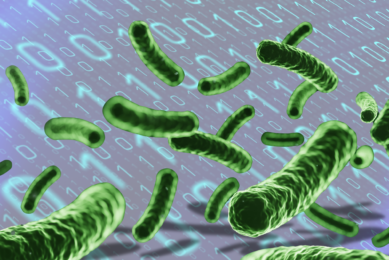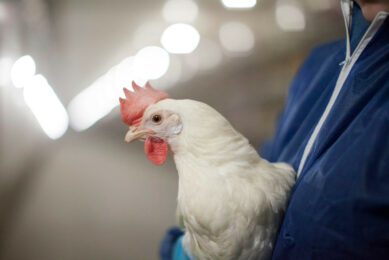Research: Synbiotic to control campylobacter in poultry
Italian research investigated the use of a Bifidobacterium-based synbiotic product to reduce the transmission of C. jejuni along the poultry food chain.
After the ban of dietary antimicrobial agents, the use of probiotics, prebiotics and synbiotics has attracted a great deal of attention in order to improve intestinal health and control food-borne pathogens, which is an important concern for the production of safe meat and meat products.
Recently, Campylobacter jejuni has emerged as a leading bacterial cause of food-borne gastroenteritis in humans, and epidemiological evidences indicate poultry and poultry products as the main source of human infection.
This work aimed at the development of a synbiotic mixture capable of modulating the gut microbiota of broiler chickens to obtain an increase of the beneficial bacteria (i.e. bifidobacteria, lactobacilli) and a competitive reduction of C. jejuni.
Trial setup
The prebiotic compound used in the mixture was chosen after an in vivo trial: a fructooligosaccharide and a galactooligosaccharide were separately administered to broilers mixed with normal feed at a concentration of 0.5% and 3%, respectively.
Quantitative PCR on DNA extracted from faecal samples revealed a significant increase of Bifidobacterium spp. in broilers treated with the galactooligosaccharide, coupled to a decrease of Campylobacter spp.
The galactooligosaccharide was then combined with a probiotic Bifidobacterium strain (B. longum subsp. longum PCB133), possessing in vitro antimicrobial activity against C. jejuni.
The strain was microencapsulated in a lipid matrix to ensure viability into the feed and resistance to stomach transit.
Finally, the synbiotic mixture was administered to broiler chickens for 14 days mixed with normal feed in order to have an intake of 109 CFU of PCB133/day.
Bifidobacterium spp., Lactobacillus spp., Campylobacter spp., B. longum subsp. longum and C. jejuni were quantified in faecal samples. PCB133 was recovered in faeces of all animals.
Results
C. jejuni concentration in poultry faeces was significantly reduced in chickens administered with the synbiotic mixture.
This study allowed to highlight the positive effect of the synbiotic approach for C. jejuni reduction in broiler chickens, which is of fundamental importance for the safety of poultry meat consumers.
Highlights
- A reduction of C. jejuni in chickens gut can lead to safer poultry products
- Probiotics and prebiotics, in animal nutrition, can modulate the gut microbiota
- Microencapsulation improves probiotic survival in the feed and gastrointestinal tract
- The synbiotic product supplemented to broilers chickens enables C. jejuni reduction











